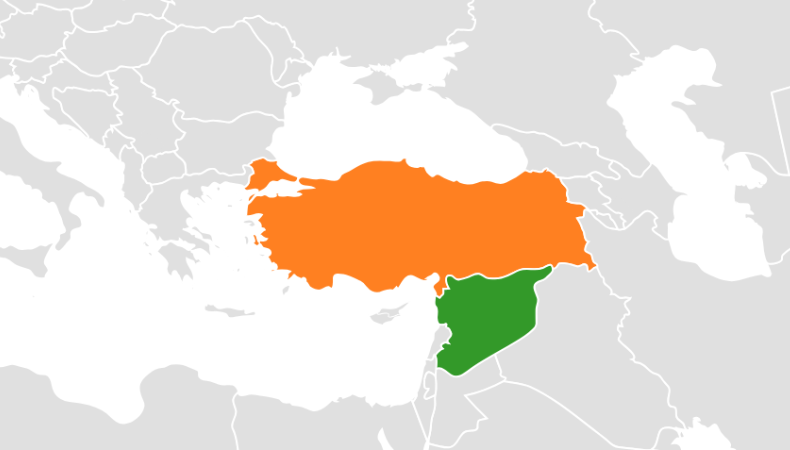Are Turkey and Syria Nearing Restoration of Relations: Why This is Crucial

The relationship between Turkey and Syria has historically been marked by deep-seated animosity and complex geopolitical dynamics, exacerbated significantly during the Syrian Civil War. Turkey, hosting millions of Syrian refugees and supporting opposition groups, found itself at odds with the Assad regime in Syria. Conversely, Syria, under Bashar al-Assad’s regime, viewed Turkey’s involvement as interference in its internal affairs. Despite these tensions, recent diplomatic developments suggest a potential shift towards reconciliation, prompting speculation about the future of their bilateral relations and implications for regional stability.
From Frosty Relations to Cautious Diplomacy
Turkey and Syria have been on opposing sides of the Syrian conflict, with Turkey backing various opposition factions and providing refuge to Syrian civilians fleeing the violence. Meanwhile, Syria has viewed Turkey’s involvement as unwelcome interference. However, recent diplomatic signals indicate a possible thaw. Both President Recep Tayyip Erdogan of Turkey and President Bashar al-Assad of Syria have made statements indicating openness to restoring diplomatic ties. These public gestures, though tentative, mark a departure from previous hostile rhetoric.
Reports have surfaced suggesting discreet communications between intelligence officials from Turkey and Syria, hinting at efforts to explore common ground and potentially normalize relations. These initial steps, albeit cautious, signify a significant departure from years of estrangement and conflict.
Why Reconciliation Holds Weight
The potential reconciliation between Turkey and Syria carries substantial implications for the region. Firstly, it could enhance regional stability by reducing tensions in the Eastern Mediterranean and broader Middle East, potentially mitigating proxy conflicts and improving regional security. Economically, improved relations could lead to increased cooperation, with Turkey’s economic prowess potentially playing a pivotal role in Syria’s post-war reconstruction efforts. This collaboration could include Turkish investment in rebuilding Syria’s infrastructure and economy, benefiting both nations economically.
Humanitarianly, a cooperative approach could facilitate the safe return of some Syrian refugees to their homeland, easing the burden on Turkey and addressing humanitarian concerns stemming from displacement. Moreover, a normalized relationship could foster greater cooperation on border security and counter-terrorism efforts, which are crucial for both countries’ stability.
Remaining Challenges
Despite the positive diplomatic signals, significant challenges remain on the path to reconciliation. Turkey’s military presence in northern Syria, aimed at curbing Kurdish influence and securing its borders, remains a contentious issue for the Assad regime. Syria, on the other hand, has sometimes tolerated the presence of Syrian Kurdish groups aligned with the PKK, viewing them differently from Turkey.
Addressing the Kurdish question and balancing conflicting interests will be crucial for sustaining diplomatic progress. Additionally, both countries must navigate issues of accountability and reconciliation for human rights abuses, war crimes, and displacement during the Syrian conflict. Balancing justice with reconciliation efforts will require careful diplomatic maneuvering and possibly third-party mediation.
The Road Ahead: Navigating Complexity
To overcome these challenges and sustain diplomatic progress, Turkey and Syria must prioritize building mutual trust through sustained dialogue and confidence-building measures. Addressing outstanding territorial disputes and security concerns through diplomatic channels and possibly third-party mediation could pave the way for deeper cooperation.
Keep On Reading
International support and engagement, including from key regional and global powers, will be crucial in facilitating constructive dialogue and ensuring the sustainability of any peace initiatives. Continued diplomatic efforts and international cooperation are essential for navigating the complexities of the Turkey-Syria relationship and capitalizing on the potential benefits of reconciliation for regional stability and prosperity.
A Glimmer of Hope
While the journey towards full reconciliation remains challenging, the recent diplomatic overtures between Turkey and Syria offer a glimmer of hope for peace and stability in the region. If managed effectively, a thaw in relations could not only benefit Turkey and Syria but also have broader implications for Middle Eastern geopolitics, humanitarian efforts, and international security. As both countries cautiously navigate this delicate diplomatic terrain, the potential rewards of reconciliation are substantial, promising a more stable and prosperous future for the region as a whole.










